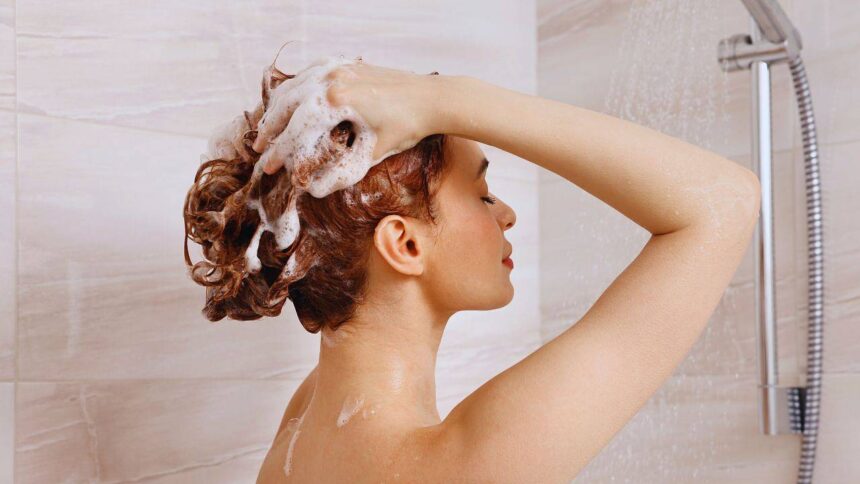Scalp problems can have many causes – from common dandruff to eczema, seborrheic dermatitis and chronic psoriasis. Symptoms such as itching, burning and excessive flaking not only affect daily comfort but also the appearance of hair. Properly selected dermocosmetics can restore balance and ease irritation. The best results come from combining a shampoo with a conditioner, since shampoo alone can often be too harsh and drying, especially for sensitive scalp.
Different problems – different needs
Not every scalp condition requires the same solution. Choosing the right product should be tailored to the type of problem:
- a shampoo for irritated scalp – calms burning and reduces redness,
- a shampoo for itchy scalp – brings quick relief from persistent itching,
- a shampoo for sensitive scalp or a shampoo for caring for sensitive scalp – suitable for skin prone to frequent irritation,
- a shampoo for dandruff or an anti-dandruff shampoo – reduce flaking and regulate sebum production,
- a shampoo for seborrheic dandruff, a shampoo for oily dandruff or a shampoo for hair with dandruff – for oily scalps and seborrheic dermatitis,
- a shampoo for psoriasis, an eczema shampoo or a shampoo for seborrheic dermatitis – support treatment of chronic conditions and reduce flare-ups.
This wide range of options allows care to be adapted to the scalp’s individual needs and the severity of symptoms.
Why shampoo should always be paired with conditioner
While shampoo effectively cleanses, it can also disrupt the hydrolipid barrier and cause dryness. That is why every routine should be complemented with a conditioner. An anti-psoriasis hair conditioner or an anti-eczema hair conditioner soothes, regenerates and restores comfort to the scalp. Conditioners also hydrate the hair, reduce brittleness and enhance resilience.
Other targeted options include:
- an anti-dandruff hair conditioner – complements the effect of an anti-dandruff shampoo,
- a hair conditioner for seborrheic dermatitis – supports regeneration and reduces irritation,
- strengthening conditioners – maintain healthy-looking hair during long-term treatment.
Only the synergy of shampoo and conditioner delivers the full effect: cleansing, soothing and rebuilding.
Everyday habits that support scalp care
Effective scalp care is not limited to shampoo and conditioner. Daily habits also play a crucial role in reducing the intensity of symptoms.
Helpful rules to follow:
- avoid washing hair in very hot water, which increases dryness and irritation,
- limit frequent use of straighteners, curling irons and blow dryers,
- wear breathable hats and scarves made of natural fabrics,
- use moisturizing and soothing cosmetics regularly,
- maintain a diet rich in zinc, B vitamins and omega-3 fatty acids,
- drink enough water – internal hydration improves scalp health.
These habits enhance the effects of treatment and make the scalp less prone to inflammation and discomfort.
Summary
Scalp conditions – from dandruff to psoriasis – require an individual and comprehensive approach. The best results come from pairing shampoo and conditioner, since shampoo alone can be too aggressive and drying. Products such as a shampoo for psoriasis, an eczema shampoo, an anti-psoriasis hair conditioner or an anti-eczema hair conditioner form the basis of an effective routine. Supported by healthy habits and a balanced diet, dermocosmetics and specialized cosmetics help reduce symptoms and improve comfort for those living with chronic scalp conditions.
